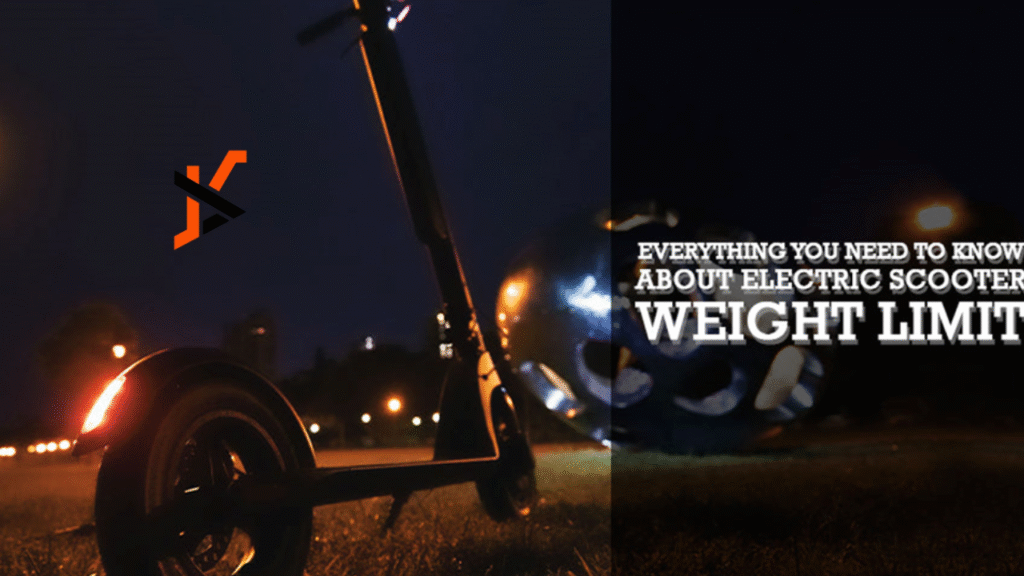Electric scooters are no longer just a fun, eco-friendly way to get around—they’ve become a reliable transportation choice for commuters and adventure seekers alike. However, one of the most important yet often overlooked aspects when choosing an electric scooter is its weight limit. Understanding this factor is essential for both safety and performance. Whether you’re comparing models or planning to buy electric scooter online, knowing the weight capacity will help you make the right decision for your riding needs.
Why Weight Limit Matters
Every electric scooter is designed with a specific maximum load capacity that ensures it operates safely and efficiently. Exceeding this weight limit can affect speed, range, braking distance, and even the overall stability of the scooter. For example, a scooter rated for 100 kg may slow down significantly or struggle on inclines if used by a heavier rider.
Manufacturers establish these limits after testing frame strength, motor performance, and suspension durability. Ignoring them not only risks mechanical damage but can also void the product warranty.
Typical Weight Limits of Electric Scooters
Different models come with different load capacities depending on their design, motor power, and build materials. Here’s a general guide to what you can expect:
- Lightweight or commuter scooters: 90–100 kg
- Mid-range scooters: 100–120 kg
- Heavy-duty or performance scooters: 120–150 kg or more
If you plan to carry a backpack or additional accessories, it’s best to include that extra weight in your estimate when selecting a model.
How Weight Affects Performance
1. Speed and Acceleration
A heavier load can reduce the scooter’s top speed and slow down its acceleration. The motor needs to work harder, consuming more battery power to maintain performance.
2. Battery Range
Weight directly influences the distance your scooter can travel on a single charge. The heavier the rider, the shorter the range—especially on hilly terrain.
3. Braking Efficiency
Exceeding the weight limit can affect braking distance, as the scooter will require more time to come to a full stop. Proper load distribution helps maintain control and balance during sudden stops.
4. Tyre and Suspension Wear
A scooter carrying more weight than intended experiences greater pressure on tyres and suspension systems, which can lead to faster wear and reduced comfort over time.
Choosing the Right Scooter for Your Weight
When shopping for an electric scooter, always check the manufacturer’s recommended load capacity. It’s wise to choose a model that supports at least 10–15% more than your actual body weight to account for clothing, bags, or groceries.
If you weigh above average, consider heavy-duty models with reinforced frames, dual motors, and pneumatic tyres for better shock absorption and control. These designs ensure smooth rides even on rough roads.
Tips to Maintain Performance and Safety
- Check tyre pressure regularly: Properly inflated tyres improve stability and load support.
- Avoid sudden acceleration: This reduces strain on the motor and battery.
- Inspect frame and suspension: Look for signs of bending or stress if you frequently ride near the weight limit.
- Charge properly: Keep the battery in top condition to handle extra demand.
When to Upgrade Your Scooter
If your current scooter feels sluggish, overheats frequently, or struggles to climb gentle slopes, it might be time to consider a higher-capacity model. Investing in a scooter with better weight support can drastically improve performance, longevity, and safety.
Conclusion
The electric scooter weight limit plays a vital role in determining not only safety but also comfort, performance, and lifespan. Choosing a scooter within your weight range ensures smooth rides, efficient power use, and reliable handling. Whether you’re a commuter, student, or adventure enthusiast, always prioritize a model that matches your needs and physical build. If you’re planning to buy electric scooter online, make sure to review the specifications carefully and invest in a reputable brand for the best experience.
FAQs
1. What happens if I exceed my scooter’s weight limit?
Exceeding the limit can reduce performance, strain the motor, cause overheating, and potentially damage the frame or tyres. It also increases the risk of accidents.
2. Do heavier riders need a more powerful scooter?
Yes. Heavier riders benefit from scooters with stronger motors (500W or higher) and reinforced frames to ensure stability and consistent performance.
3. Can the battery drain faster if the scooter carries more weight?
Absolutely. Extra weight requires more energy from the motor, which shortens the scooter’s battery range.
4. How can I increase my scooter’s weight capacity?
Unfortunately, you can’t increase it beyond the manufacturer’s limit. The best approach is to select a scooter designed for higher loads.

